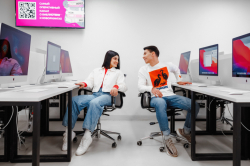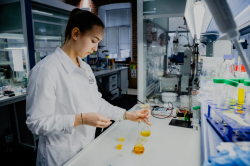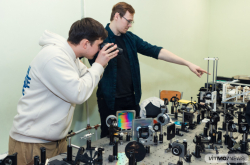Choose a program:
- Digital Humanities
- Science Communication
- Product Design
- Business Transformation Strategies and Technologies
- Digital Urban Studies
- Art & Science
Digital Humanities
Prospective students: humanities graduates (art historians, culturologists, philologists, historians, and sociologists) who wish to apply IT in working with cultural data, including its visualization.
You will learn to:
- work with big data: collect, process, analyze, and visualize it using machine learning
- develop interfaces
- conduct UX studies
- design web portals
- create data-based media products
Specializations:
- Curatorship of Digital Projects. This one is for future producers of cultural and digital projects, managers in culture or creative industries, UX researchers, designers, or media storytellers.
- Internet Studies. This track is for those who wish to pursue a research career, be that in academia, journalism, commercial projects, or at cultural organizations.
Job prospects: graduates can find employment as narrative designers, curators, data journalists, or managers and producers of digital projects. Among the potential employers are creative industry representatives (marketing agencies, music labels, game developers, etc.), IT companies, museums, galleries, libraries, as well as cultural or research institutions.
Program’s partners: the Institute of Russian Literature (Pushkin House), Peterhof Museum, Mayakovsky Central Public Library, State Museum of the History of Religion, Prozhito project.
How to get in: entrance exams or competitions, including ITMO’s Portfolio Contest, Digital Humanities project contest, ITMO’s Mega Contest, or the best report competition at the Congress of Young Scientists.
Read also:
Science Communication
Prospective students: humanities graduates with any background, including journalists and PR managers, who wish to get into data journalism, understand the world of academic research, and use digital tools in their work.
You will study:
- data processing methods
- statistics
- programming in R
- programming in Python
- basic machine learning
- basic applied AI
- automatic text and image processing
- data visualization
- multimedia project development
Job prospects: graduates of the program will be able to take up positions as PR managers at universities or academic, medical, and IT companies, as well as work with popular science publications, science museums, or popular science projects.
Program's partners: Yandex, Netology, Higher School of Economics, BIOCAD, GEROPHARM, N.N. Petrov National Medicine Research Center of Oncology, Foundation for Cancer Prevention, Severgroup Medicine.
How to get in: entrance exams or via ITMO’s Portfolio Contest and Mega Contest or the Popular Science Idea contest.
Read also:
Spelling a Story Bit by Bit: How To Get Into Data Journalism
Product Design
Prospective students: applicants with any background. The program is a great fit for designers, web developers, and copywriters.
You will learn:
- UX studies
- digital product design
- web development and web interface design
- mobile development
- prototyping
- DesignOps
- data engineering
- no-code programming
Job prospects: graduates can work as UX/UI designers, digital product developers, UX analysts, and UX writers.
Program's partners: Netology, Ozon, Megafon, Raiffeisen Bank, Croc, Picsart.
How to get in: entrance exams or competitions, including the I Am a Professional contest, ITMO’s Portfolio Contest, Product Design contest, and Mega Contest.
Photo by Kirill Dzhenzherukha / ITMO’s Mediaportal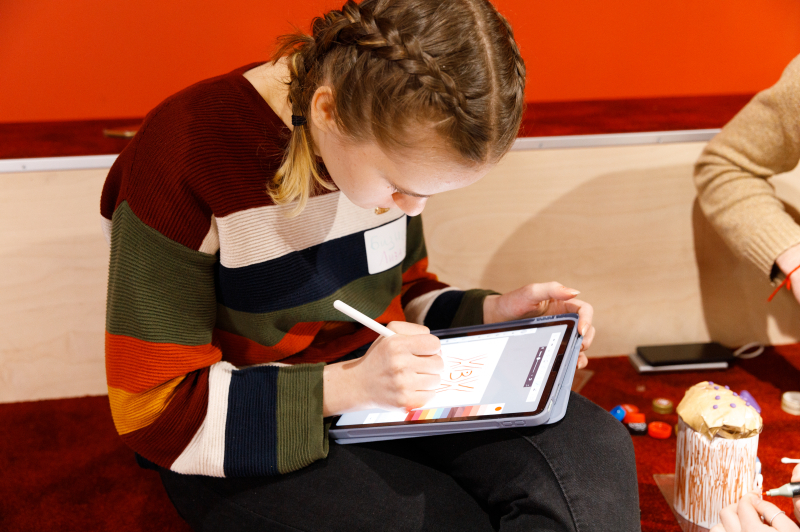
Read also:
Education With a Business Flair: All About Product Design Master’s Program by ITMO and Netology
Business Transformation Strategies and Technologies
Prospective students: applicants with any background who are interested in learning to manage tech business and IT companies.
You will study:
- programming in R for statistical analysis
- big data processing
- basic machine learning and applied AI
- management in software development
- digital economy principles
Job prospects: graduates will be able to pursue careers as business analysts and project leaders in IT or digital transformation.
How to get in: entrance exams or competitions, including the I Am a Professional contest, ITMO’s Portfolio Contest, ITMOTECH pitch contest, Mega Contest, and the best report competition at the Congress of Young Scientists.
Digital Urban Studies
Prospective students: applicants of any background who are interested in urban studies and want to learn how to manage urban development with modern technologies.
You will learn to:
- work with geoinformation systems and urban data
- use 3D modeling and specialized software for spatial analysis
- program in Python and use machine learning in urban studies
- work with applied AI
- employ the R language in statistical data processing
- automate the processing of texts and images with the help of computer vision
Specializations:
Urban Planning. Here, students learn about modern approaches to urban planning.
Knowledge-Intensive Technologies and Innovation Economy. Students of this track learn to manage innovative projects in urban studies.
Job prospects: graduates are welcome in urban governance and at institutions specializing in the issues of urban planning, as well as enterprises and organizations in urban development.
Program's partners: Sberbank, St. Petersburg Information and Analytical Center, Scientific Research Institute of Perspective Urban Development, Luxms Group, Smart Media Systems, MLA+ architectural studio.
How to get in: entrance exams or competitions, including the I Am a Professional contest, ITMO’s Portfolio Contest, Mega Contest, and the best report competition at the Congress of Young Scientists.
Read also:
Not Just Bike Paths and Greening: What Urban Planners Really Do
Art & Science
Prospective students: applicants with any background who are interested in science art.
You will learn to:
- work with AI
- apply machine learning for data processing
- work with digital interfaces
- program
- work with robotic equipment and Arduino
Specializations:
- Robotic Art and Interactive Art. Here, students explore human-machine interactions and use robotics in art.
- Digital Worlds. In this track, students work with AI, digital and online environments, VR, and digital art.
- Bioart: Biomedia and the New Nature. This track is for those who wish to work with live organisms and environments.
This year’s Art & Science graduates presented their thesis projects at the recent STAGE exhibition. Among them was Daria Vysokova’s Neuroplasticity. Photo by Dmitry Grigoryev / ITMO.NEWS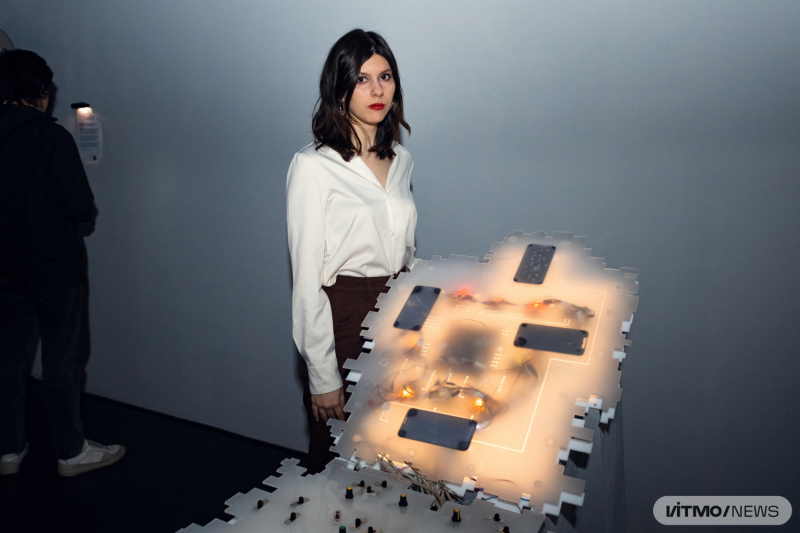
Job prospects: apart from working as artists, graduates will be able to pursue careers as curators, designers, digital project producers, or art managers. Another career path is as PR or SM managers, as well as writers for topical media outlets.
Program's partners: Myth Gallery, Masters Digital Gallery, Cyland MediaArt Lab.
How to get in: entrance exams or competitions, including the I Am a Professional contest, ITMO’s Portfolio Contest, Art & Science contest, and Mega Contest.



